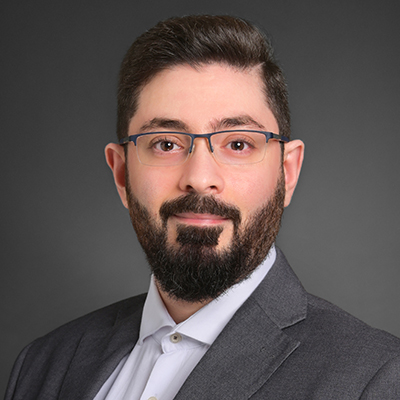

Dr. Khalil Al Hussaeni
Assistant Professor, Rochester Institute of Technology
“With extensive international experience in cybersecurity, our team are very excited to contribute to the enhancement and protection of Dubai’s digital infrastructure.”
Artificial intelligence (AI) technology is built to provide us with automated and high-speed systems and processes to improve efficiency in our daily lives and the workplace. Furthermore, such technology enables machines to make smart decisions to solve daily problems for public (e.g.,government) and private (e.g., industry) sectors, from transportation to power and facility services, to name a few. However, with the increasing pace of threats and attacks that are being developed, traditional detection and protection systems are no longer scalable, efficient, or accurate. To cope with this challenge, security scientists and engineers have designed AI-based (e.g., machine learning) mechanisms to help mitigate the threats against critical infrastructure in smart cities. Nevertheless, malicious users have misused machine learning algorithms to bypass security controls (e.g.,detection and protection). The study of such behavior is known as adversarial machine learning (AML), in which attackers deceive classifiers into injecting undetected attacks. Research on AML has been thoroughly studied in many fields, such as image recognition. However, in other areas, such as threat detection, the investigation of such techniques is still relatively new. In this project, we explore adversarial machine learning to fill this gap, emphasizing threat detection. Specifically, the aim of this project is threefold: 1) understand the major attack vectors in adversarial attacks targeting critical infrastructure in the smart city of Dubai, such as transportation, telecommunication, water, and power facilities, among others; 2) find an effective approach to poison machine learning models and measure their effectiveness (e.g., success rate) systematically based on datasets collected in the UAE in general and Dubai in particular; and 3) implement a prevention approach that mitigates adversarial attacks at an early stage based on large datasets.